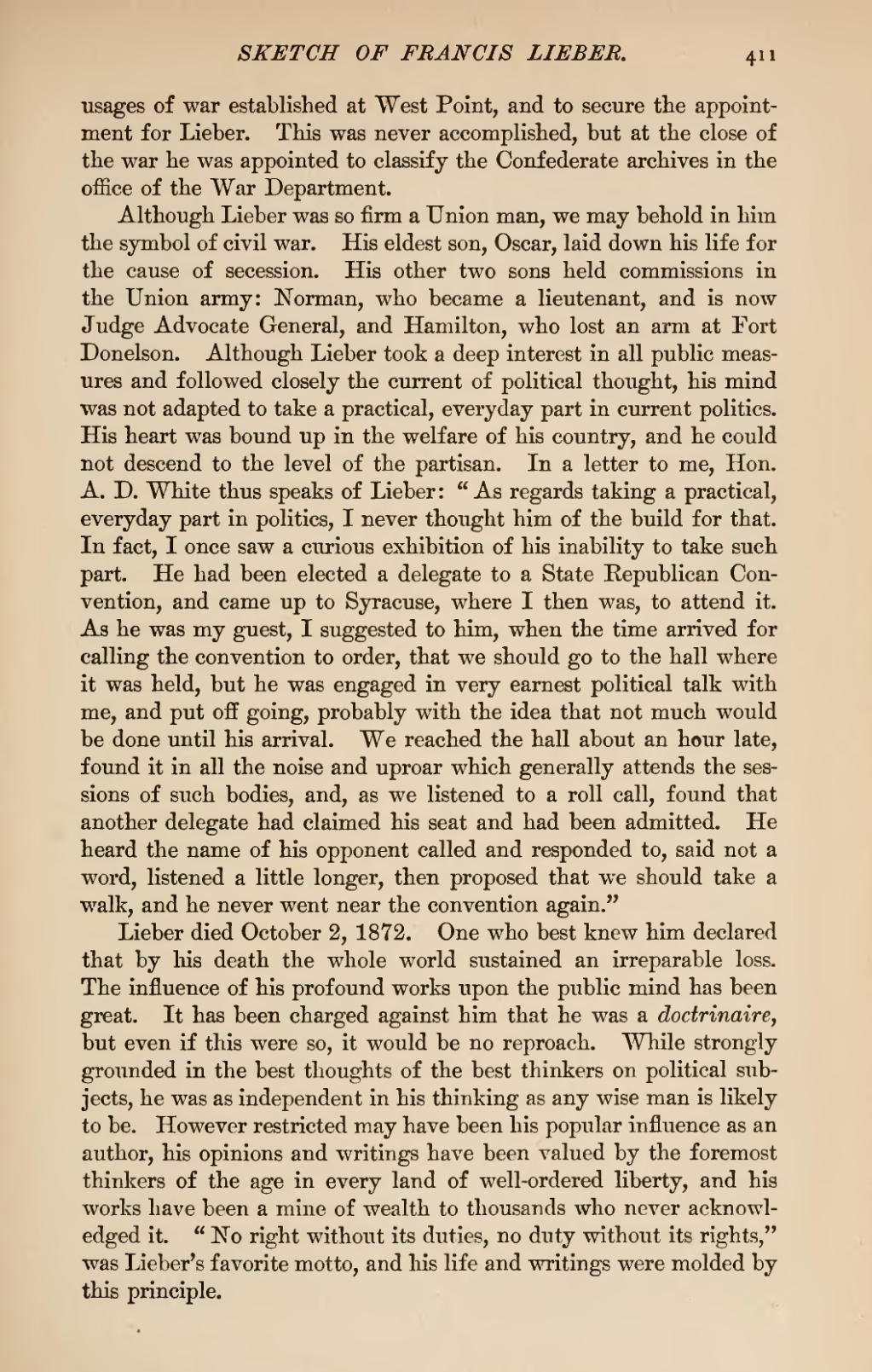usages of war established at West Point, and to secure the appointment for Lieber. This was never accomplished, but at the close of the war he was appointed to classify the Confederate archives in the office of the War Department.
Although Lieber was so firm a Union man, we may behold in him the symbol of civil war. His eldest son, Oscar, laid down his life for the cause of secession. His other two sons held commissions in the Union army: Norman, who became a lieutenant, and is now Judge Advocate General, and Hamilton, who lost an arm at Fort Donelson. Although Lieber took a deep interest in all public measures and followed closely the current of political thought, his mind was not adapted to take a practical, everyday part in current politics. His heart was bound up in the welfare of his country, and he could not descend to the level of the partisan. In a letter to me, Hon. A. D. White thus speaks of Lieber: "As regards taking a practical, everyday part in politics, I never thought him of the build for that. In fact, I once saw a curious exhibition of his inability to take such part. He had been elected a delegate to a State Republican Convention, and came up to Syracuse, where I then was, to attend it. As he was my guest, I suggested to him, when the time arrived for calling the convention to order, that we should go to the hall where it was held, but he was engaged in very earnest political talk with me, and put off going, probably with the idea that not much would be done until his arrival. We reached the hall about an hour late, found it in all the noise and uproar which generally attends the sessions of such bodies, and, as we listened to a roll call, found that another delegate had claimed his seat and had been admitted. He heard the name of his opponent called and responded to, said not a word, listened a little longer, then proposed that we should take a walk, and he never went near the convention again."
Lieber died October 2, 1872. One who best knew him declared that by his death the whole world sustained an irreparable loss. The influence of his profound works upon the public mind has been great. It has been charged against him that he was a doctrinaire, but even if this were so, it would be no reproach. While strongly grounded in the best thoughts of the best thinkers on political subjects, he was as independent in his thinking as any wise man is likely to be. However restricted may have been his popular influence as an author, his opinions and writings have been valued by the foremost thinkers of the age in every land of well-ordered liberty, and his works have been a mine of wealth to thousands who never acknowledged it. "No right without its duties, no duty without its rights," was Lieber's favorite motto, and his life and writings were molded by this principle.
